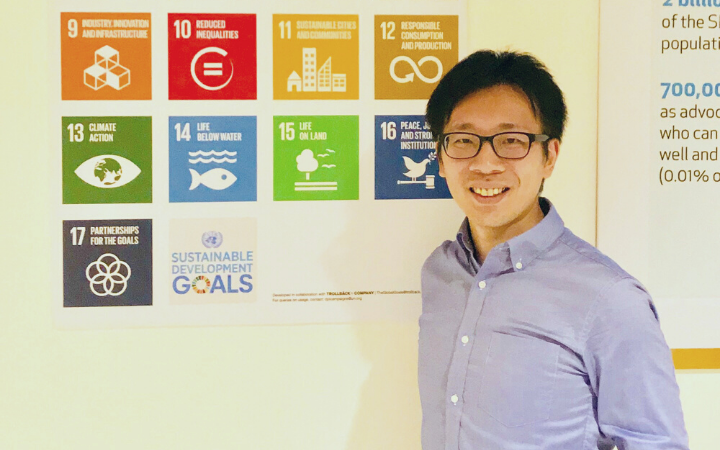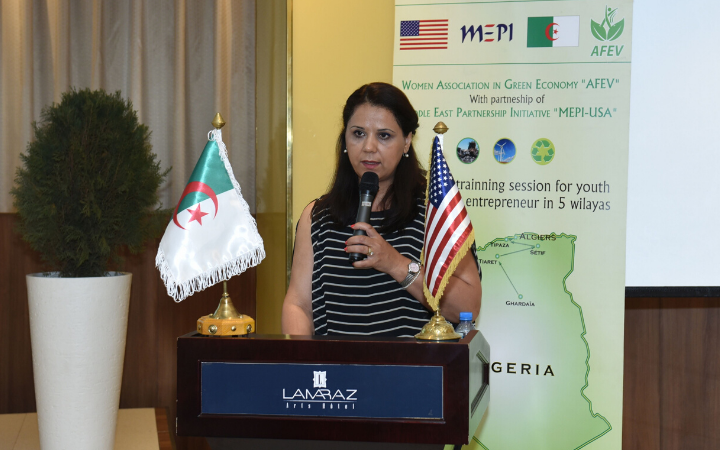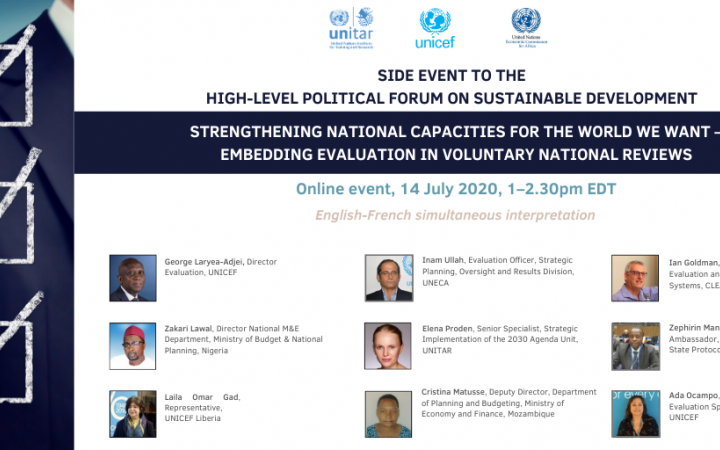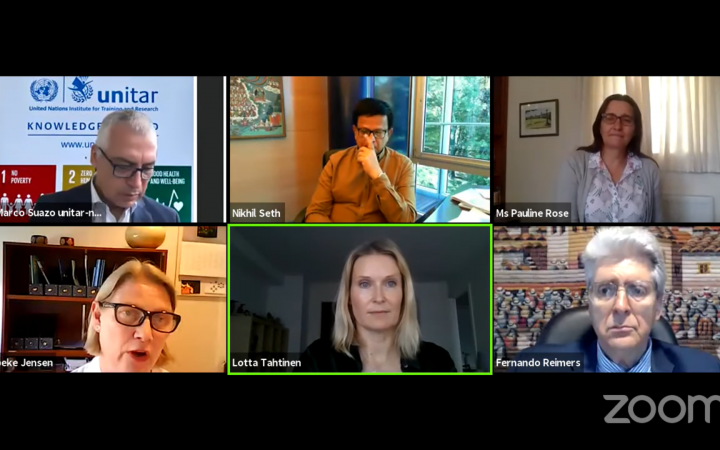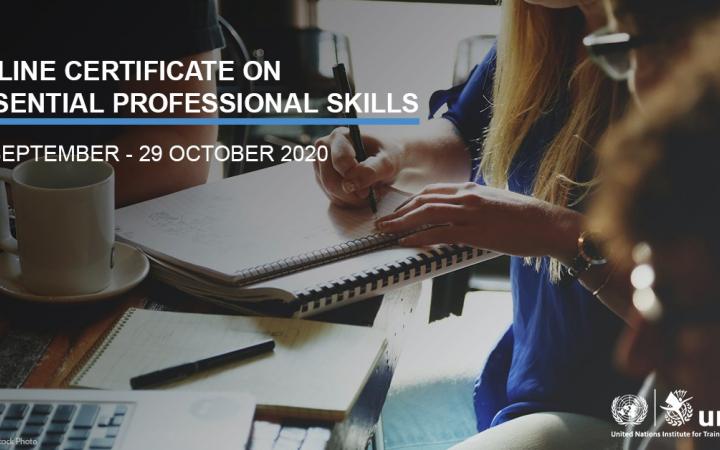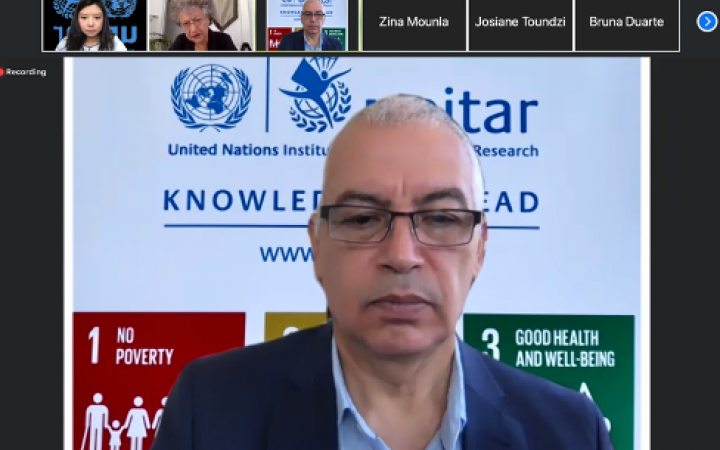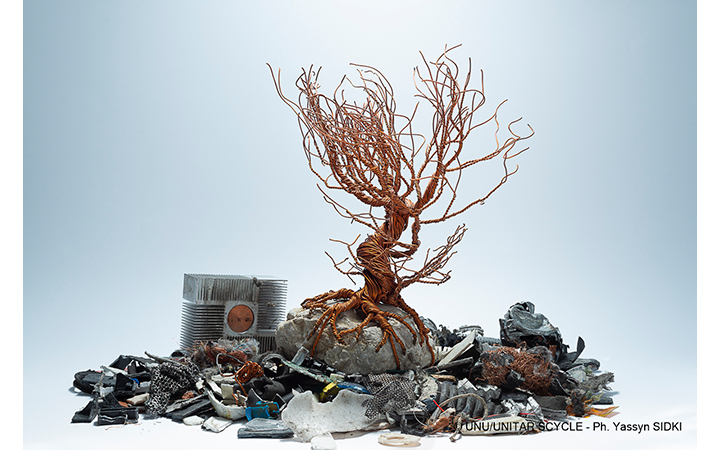Displaying 841 - 850 of 1301
14 July 2020
During the course, we talked often amongst the other participants of the ELPE. Before the ELPE, I didn’t think about SDG evaluation. Gradually, with my colleagues in the class we exchanged our knowledge and opinions. It was very effective to talk with the other colleagues from all over [the world]. We shared knowledge, and I was inspired, so I decided to start the SDG evaluation in Japan. They are also working on the SDG evaluation in their [respective] countries.
14 July 2020
The Partnership for Action on Green Economy (PAGE) is a joint mechanism between five UN agencies, of which the United Nations Institute for Training and Research (UNITAR) is one. Hosted and led by the United Nations Environment Programme (UNEP), PAGE aims to help Member States embark on a greener and more inclusive growth trajectory by putting sustainability at the heart of economic policies and practices to advance the 2030 Agenda for Sustainable Development.
14 July 2020
On 14 July 2020, UNICEF, UNECA and UNITAR organized an online side event “Strengthening National Capacities for the World We Want – Embedding Evaluation in Voluntary National Reviews” during the virtual 2020 High-Level Political Forum on Sustainable Development (HLPF). The event aimed to explore and promote the use of evaluative thinking and evidence within Voluntary National Reviews (VNRs). Representatives from UNICEF, UNECA and UNITAR were joined by panelists from several African countries to share their experiences and the challenges and opportunities they have faced in their VNR and evaluation processes.
14 July 2020
Pollutant Release and Transfer Registers (PRTRs) are effective tools for the collection and dissemination of data on emissions and transfers of a determined list of chemicals. The availability of this information can help policy-makers to identify the source of chemical pollution in the country to make informed decisions on how to best remediate degraded environments and enact policies related to the sound management of chemicals.
9 July 2020
Curitiba, Brazil, 9 July 2020 - New technologies have had unprecedented impacts on industries and on the performance of professionals. The so-called fourth industrial revolution provided the citizens of the 21st century with a set of technologies with unprecedented historical impacts, materialized in the wide digitalization and technological convergence of the most diverse aspects.
7 July 2020
7 July 2020, New York, USA, Zoom Workshop - The United Nations Institute for Training and Research (UNITAR) Office in New York, in collaboration with the United Nations Department of Economic and Social Affairs (UNDESA), hosted the first workshop “Learning and Training for SDG implementation in the COVID-19 era” of the High-level Political Forum (HLPF).
7 July 2020
Join UNITAR’s online certificate on essential professional skills starting 15 September covering approximately 48 hours of online training up until 29 October. The certificate will consist of a series of e-workshops targeted to working professionals and individuals seeking to improve their professional skills.
7 July 2020
7 July 2020, Geneva, Switzerland - 30 diplomats and embassy personnel from the Republic of Kenya, the Democratic Republic of the Congo, the Republic of Burundi, and the Republic of Rwanda gathered virtually in order to reinforce their skillset in two key areas: Cybersecurity and Security Awareness, and Digital Diplomacy.
2 July 2020
2 July 2020, New York, United States – On 2 July 2020, the United Nations Institute for Training and Research (UNITAR) office in New York, in collaboration with the Permanent Mission of Switzerland to the United Nations and the United Nations Department of Economic and Social Affairs (UN DESA), hosted the third module of the ‘Realizing the Future we Want’, a training series in preparation for the General Assembly’s 2020 Quadrennial Comprehensive Policy Review (QCPR) of operational activities for development of the United Nations system. The focus of the third module was on funding UN operational activities for development and financing the Sustainable Development Goals (SDGs). The module was held online, and attracted more than 150 participants from numerous Member States.
2 July 2020
A record 53.6 million tonnes (Mt) of e-waste was produced globally in 2019 — the weight of 350 cruise ships the size of the Queen Mary 2; $57 billion in gold and other components discarded — mostly dumped or burned.


